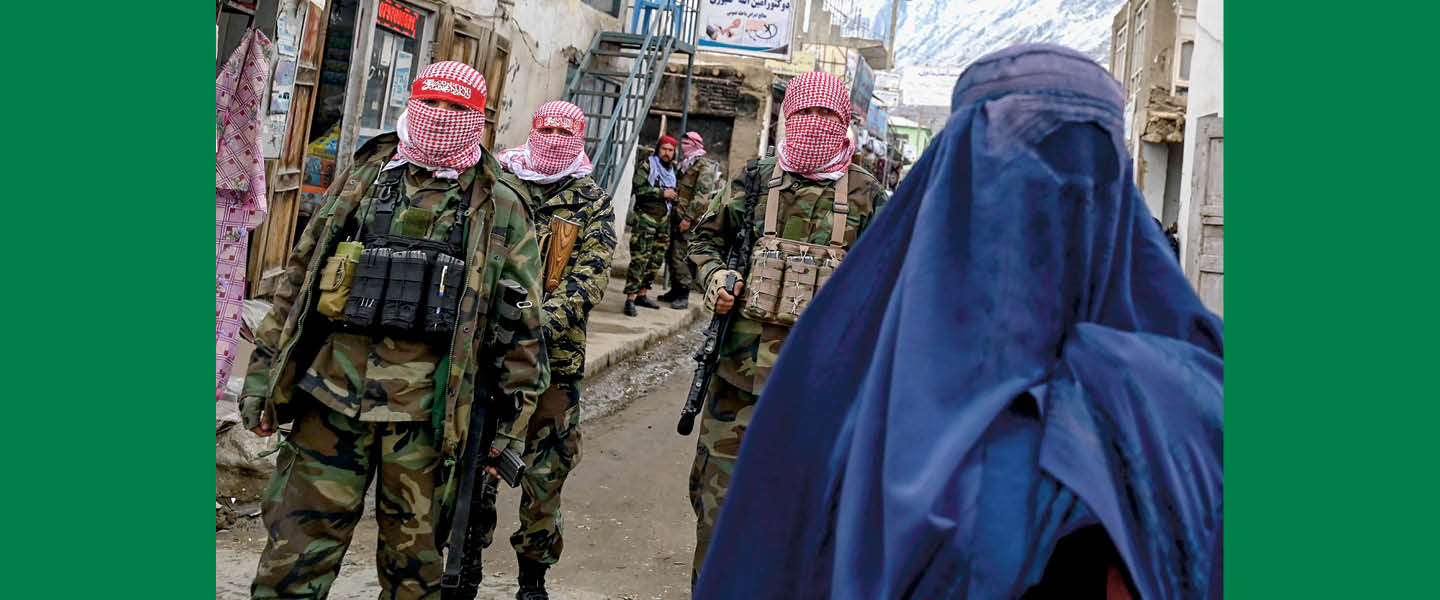Freshta Nasimi had aspirations of becoming an engineer, a job that would bring her a steady income and the freedom young people yearn for.
But for the past couple of years, Nasimi, 20, hasn’t gone to school. In 2022, the Taliban government barred women in Afghanistan from attending universities, a few months after closing schools to girls beyond the sixth grade. It was just one of a series of prohibitions that the ruling Taliban, a radical Islamic faction, had issued to banish Afghan women and girls from public life.
Nasimi had hoped the government would at the very least broadcast girls’ schooling over television, but authorities banned such programs from the airwaves in February 2024. Now Nasimi says her dreams of a professional life have vanished.
“My future?” she asks. “I don’t have a future except being a housewife and raising children.”
Blocking access to education is part of the Taliban’s broader crackdown
on the rights of women since they retook control of the country in 2021 (see timeline, below). The militant group upholds an extreme version of Sharia law—principles derived from the Quran that shape all aspects of Muslim society, including the role of women. Taliban leaders have banned women from most professions and from appearing in public spaces, such as parks, gyms, and salons. Women can’t travel far unless accompanied by a male relative or leave home without covering themselves from head to toe in a burqa or other loose clothing. The law even prohibits women from speaking aloud in public.
Freshta Nasimi once dreamed of becoming an engineer. The job would bring her a steady income and the freedom young people desire.
But for the past couple of years, Nasimi, 20, hasn’t been able to go to school. In 2022, the Taliban government barred women in Afghanistan from attending universities. Schools were also closed to girls beyond the sixth grade. These were part of a series of prohibitions that the Taliban, a radical Islamic faction, had issued to hide Afghan women and girls from public life.
Nasimi had hoped the government would at the very least broadcast girls’ schooling over television. But in February 2024, authorities banned such programs. Now Nasimi says her dreams of a professional life have disappeared.
“My future?” she asks. “I don’t have a future except being a housewife and raising children.”
Blocking access to education is part of the Taliban’s broader crackdown on the rights of women since they retook control of the country in 2021 (see timeline, below). The militant group upholds an extreme version of Sharia law—principles derived from the Quran that guide Muslim society, including the role of women. Taliban leaders have banned women from most professions. Women also can no longer appear in public spaces, such as parks, gyms, and salons. They can’t travel far unless accompanied by a male relative. They also must cover themselves from head to toe in a burqa or other loose clothing when they leave home. The law even prohibits women from speaking aloud in public.

